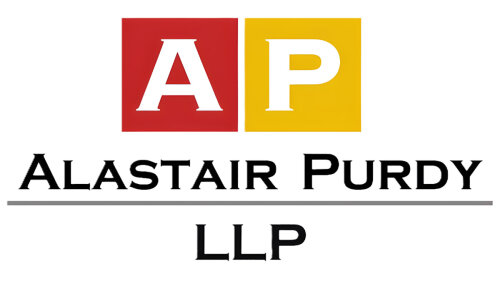Best Employment & Labor Lawyers in Galway
Share your needs with us, get contacted by law firms.
Free. Takes 2 min.
List of the best lawyers in Galway, Ireland
About Employment & Labor Law in Galway, Ireland
Employment and labor law in Galway, Ireland, falls under the broader framework of Irish employment legislation. It seeks to regulate the relationship between employers and employees, ensuring fair treatment, safe working conditions, and the rights of both parties are protected. The legislation covers areas such as employment contracts, discrimination, work hours, wages, and workplace safety. Galway, being part of Ireland, adheres to national laws but also reflects local economic and cultural conditions that may influence employment practices.
Why You May Need a Lawyer
There are numerous situations where individuals or businesses may find themselves requiring legal advice or representation in employment matters, including:
- Employment Contracts: Understanding, drafting, or disputing terms in employment contracts.
- Unfair Dismissal: If you believe you have been dismissed from your job unfairly or unlawfully.
- Discrimination: Facing discrimination based on race, gender, age, or other protected characteristics.
- Workplace Bullying or Harassment: Addressing hostile work environments or harassment claims.
- Redundancy: Navigating the legalities surrounding redundancy and severance pay.
- Wage Disputes: Resolving issues related to unpaid wages, overtime, or salary underpayment.
Having a lawyer can help negotiate terms, mediate discussions, and represent you in legal proceedings.
Local Laws Overview
In Galway, as in the rest of Ireland, several key pieces of legislation dictate employment law:
- Employment Equality Acts 1998-2015: These acts prohibit discrimination across nine grounds, including gender, marital status, family status, sexual orientation, religion, age, disability, race, and membership of the Traveller community.
- Unfair Dismissals Acts 1977-2015: Provides protection against wrongful dismissal and sets out fair procedures for termination.
- Minimum Wage Order: Establishes the statutory minimum wage rate for workers.
- Organisation of Working Time Act 1997: Regulates rest breaks, maximum working hours, and annual leave entitlements.
- Health and Safety at Work Act 2005: Ensures that employers provide safe working environments to their employees.
These laws are essential for ensuring proper workplace relations and are enforced by tribunals and courts when necessary.
Frequently Asked Questions
What constitutes unfair dismissal in Ireland?
Unfair dismissal occurs when an employee is terminated without a fair reason or without due process. It is governed by the Unfair Dismissals Act and requires employers to follow proper procedures before terminating employment.
How can I resolve a workplace dispute without going to court?
Mediation and arbitration are commonly used methods to resolve disputes without resorting to litigation. The Workplace Relations Commission (WRC) can help facilitate these processes.
Am I entitled to redundancy pay?
Employees with two years of continuous service are generally entitled to statutory redundancy pay in Ireland, calculated based on length of service and weekly earnings.
How is bullying defined in the workplace?
Workplace bullying is defined as repeated inappropriate behavior that undermines the dignity of an employee. It can be physical, verbal, or psychological.
What is the minimum wage in Ireland?
The national minimum wage in Ireland is subject to change and should be verified with the latest legislation. It varies based on the age of the employee and their role.
How do I file a discrimination complaint?
Complaints can be filed with the Workplace Relations Commission. It is advisable to seek legal guidance to ensure all necessary documentation and evidence are properly submitted.
What are my rights to annual leave?
Employees are entitled to a minimum of four weeks of paid annual leave, though some employers may offer more. Leave entitlements are specified in the employment contract.
Do independent contractors have the same rights as employees?
No, independent contractors do not have the same rights as employees, such as statutory redundancy payments or unfair dismissal protection. However, they are entitled to fair terms as per their contracts.
Can I work more than 48 hours a week?
Under the Organisation of Working Time Act, the average working week should not exceed 48 hours unless specific arrangements or exceptions apply.
What should I do if I feel my workplace is unsafe?
You should report your concerns to your employer and the Health and Safety Authority (HSA). Employees have the right to refuse to work in unsafe conditions without fear of penalty.
Additional Resources
For further assistance and information, consider the following resources:
- Workplace Relations Commission (WRC): Offers services for resolving workplace disputes and handling employment rights issues.
- Health and Safety Authority (HSA): Provides guidelines and assistance on workplace health and safety matters.
- Citizens Information: Offers comprehensive information on employment rights and responsibilities.
- National Employment Rights Authority (NERA): Enforces minimum statutory employment rights and entitlements.
Next Steps
If you need legal assistance in employment and labor matters in Galway, consider taking the following steps:
- Consultation: Contact a solicitor specializing in employment law for an initial consultation to assess your situation.
- Gather Documentation: Collect all relevant documents, such as employment contracts, correspondences, and any evidence of disputes or grievances.
- Know Your Deadlines: Be aware of any timelines for filing claims or legal actions to ensure your rights are protected.
- Use Alternative Dispute Resolution: Explore mediation or arbitration as a first step to resolve disputes amicably.
Legal advice can provide clarity and aid in navigating complex employment issues effectively.
Lawzana helps you find the best lawyers and law firms in Galway through a curated and pre-screened list of qualified legal professionals. Our platform offers rankings and detailed profiles of attorneys and law firms, allowing you to compare based on practice areas, including Employment & Labor, experience, and client feedback.
Each profile includes a description of the firm's areas of practice, client reviews, team members and partners, year of establishment, spoken languages, office locations, contact information, social media presence, and any published articles or resources. Most firms on our platform speak English and are experienced in both local and international legal matters.
Get a quote from top-rated law firms in Galway, Ireland — quickly, securely, and without unnecessary hassle.
Disclaimer:
The information provided on this page is for general informational purposes only and does not constitute legal advice. While we strive to ensure the accuracy and relevance of the content, legal information may change over time, and interpretations of the law can vary. You should always consult with a qualified legal professional for advice specific to your situation.
We disclaim all liability for actions taken or not taken based on the content of this page. If you believe any information is incorrect or outdated, please contact us, and we will review and update it where appropriate.
Browse employment & labor law firms by service in Galway, Ireland
Galway, Ireland Attorneys in related practice areas.














